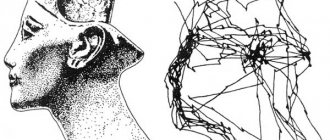Over the course of several thousand years, humanity has come a long way. Many things that were once considered the norm are now considered savagery, barbarism and crime. Modern humanism and its principles are now recognized as natural, having become an integral part of the moral foundations of society.
However, discussions around this concept do not subside. Secular and religious people, liberals, conservatives and defenders of the rights of various minorities continue to argue fiercely about humanity and its criteria. Therefore, first let us turn to the history of the issue.
What is humanism and humanity?
This concept comes from a Latin word that translates as “humane.” A humanist is a person who highlights the values of the human person. The point is to recognize the human right to freedom, development, love, happiness and so on. In addition, this also includes the denial of any violence towards living beings. The concept of humanism indicates that the basis of a worldview lies in a person’s ability to sympathize and help other people. It is important to note that the manifestation of humanity should not go against the interests of the individual.
Humanism in philosophy
This concept is used in various fields, including philosophy, where it is presented as a conscious focus on humanity without borders. There are a number of characteristics that help to understand the meaning of humanism:
- For every person, other people should be the highest value, and they should be a priority over material, spiritual, social and natural benefits.
- In philosophy, humanism is a position that describes that a person is valuable in himself, regardless of social status, gender, nationality and other differences.
- One of the dogmas of humanism says that if you think well about people, they will certainly become better.
Humanism
What is the essence of the humanistic approach in psychology?
Traditionally, the humanistic approach includes the theories of Allport G. on personality traits, Maslow A. on self-actualization, Rogers K. on instructive psychotherapy, on the life path of Buhler Sh., as well as the ideas of May R. The main provisions of the concept of humanism in psychology are as follows:
- initially a person has within himself a constructive, genuine force;
- the formation of destructive forces occurs as development progresses;
- a person has a motive for self-actualization;
- On the path of self-actualization, obstacles arise that prevent the individual from functioning effectively.
Key terms of the concept:
- congruence;
- positive and unconditional acceptance of oneself and others;
- empathic listening and understanding.
Main goals of the approach:
- ensuring the complete functioning of the individual;
- creating conditions for self-actualization;
- teaching spontaneity, openness, authenticity, friendliness and acceptance;
- education of empathy (sympathy and complicity);
- development of the ability for internal assessment;
- openness to new things.
This approach has limitations in application. These are psychotics and children. A negative result is possible with direct exposure to therapy in an aggressive social environment.
Humanity and humanism - the difference
Many people often confuse these concepts, but in fact, they have both common and distinctive features. Humanism and humanity are two inseparable concepts that imply the protection of individual rights to freedom and happiness. As for humanity, this is a certain human trait that manifests itself in a positive attitude towards other people. It is formed as a result of a conscious and stable understanding of what is good and what is bad. Humanity and humanism are interrelated concepts, since the first is formed by imitation of the principles of the second.
Personality
The humanistic approach to man and personality psychology described in the mentioned theory has been deeply analyzed by scientific psychologists. Of course, it cannot be said that this area has been completely explored, but significant theoretical research has been done in it.
This direction of psychology arose as a kind of alternative concept to the current that fully or partially identifies human psychology and animal behavior. Personality theory, considered from the point of view of humanistic traditions, is classified as psychodynamic (at the same time, interactionist). This is not an experimental branch of psychology, which has a structural-dynamic organization and covers the entire period of a person’s life. She describes him as a person, using terms of internal properties and characteristics, as well as behavioral terms.
Proponents of the theory that considers personality in a humanistic approach are primarily interested in a person’s perception, understanding and explanation of the real events of his life. Preference is given to the phenomenology of personality rather than the search for explanations. Therefore, this type of theory is often called phenomenological. The very description of a person and events in his life focuses mainly on the present and is described in the following terms: “life goals”, “meaning of life”, “values”, etc.
Signs of humanism
The main features of humanism are known, which fully reveal this concept:
- Autonomy . The ideas of humanism cannot be isolated from religious, historical or ideological premises. The level of worldview development directly depends on honesty, loyalty, tolerance and other qualities.
- Fundamentality . The values of humanism are important in the social structure and are the primary elements.
- Versatility . The philosophy of humanism and its ideas are applicable to all people and all social systems. In the existing worldview, one can go beyond the limits, since every person has the right to life, love and other characteristics.
The concept and essence of humanistic pedagogy
Remark 1
Humanistic pedagogy proclaims the basis of the educational process is the child’s personality, its full and comprehensive development. Humanization of the pedagogical process implies equality of rights for teachers and students, the manifestation of their equal activity in the learning process.
The essence of humanistic pedagogy is to create optimal conditions for the full development of a harmonious personality, enriching her life experience, realizing creative potential and personal aspirations, as well as establishing harmonious relationships with others (people, society as a whole, nature, etc.).
Humanistic pedagogy implies a kind of “humanization” of knowledge, that is, giving it a form in which it acquires personal meaning for each participant in the educational process.
Are you an expert in this subject area? We invite you to become the author of the Directory Working Conditions
Thus, the essence of humanistic pedagogy is that the child is not created for learning, but the learning process must be created specifically for the child, taking into account his capabilities and needs.
Humanism - types
There are several classifications of humanists, which differ in selection criteria. If we focus on the historical source and content, we can distinguish nine types of humanists: philosophical, communist, cultural, scientific, religious, secular, slaveholding, feudal, natural, environmental and liberal. It is worth considering what humanism is by priority:
- folk - living for the happiness of the people;
- human rights – advocating for the rights and freedoms of all people;
- pacifist - people who are peacemakers who fight against everything harmful on earth;
- public – providing assistance to children, disabled people and other people in need.
The purpose of this scientific work is to highlight and analyze the humanistic category of man as the highest ideal in the development of world philosophical thought.
Key words: humanism, humanistic ideal, highest value, freedom, justice, morality.
Man, his inner humanistic essence, place and role in social processes and phenomena is one of the eternal philosophical problems. As long as philosophical thought has existed, this problem, with its mystery and globality, has captivated thinkers who study it in a variety of philosophical aspects. And although over thousands of years many philosophical movements, schools and directions have been formed, in the center of the socio-philosophical searches of which is the humanistic value of man, this problem remains relevant, since human society, the conditions in which it functions, and, consequently, are constantly changing. The person himself, his value orientations, tastes, ideals and worldviews change. The purpose of this scientific work is to highlight and analyze the humanistic ideal in socio-philosophical discourse.
A comparative comparison of studies in which the problem of man is considered from the positions of theology, ontology, epistemology, phenomenology and other concepts gives grounds to assert that in the axiological aspect it has not been sufficiently studied at the moment, although ideas about man as the highest humanistic ideal have been expressed by thinkers long before our era. Man became the focus of philosophical science, which only separated from mythology, since it sought to explain the nature of man, his essence, social role, and to identify what makes a person human. For example, Socrates is believed to have been the creator of the first philosophical concept of man. He, according to Xenophon, unlike his predecessors and contemporaries, wanted not only to explain nature, the universe and space, but first of all man. Ancient philosophy formulated the principle according to which “man is the measure of all things.”
However, even at that time this principle was interpreted differently. Thus, according to Socrates, man is the measure of all things as the bearer of divine reason. Protagoras believed that man is the measure of all things that exist, that they exist, and those that do not exist, that they do not exist. In Heraclitus, Democritus, and Aristotle, this position acquired a materialist-anthropological significance, which had a significant impact on the further development of the materialist trend in philosophy. There were many other interpretations of this humanistic position about man [1]. The humanistic meaning of this maxim is that a person was already considered at that time as the highest value, which is a criterion for evaluating objects and phenomena of the surrounding world, including those that he himself creates in the process of his creative activity. Thus, according to the sophists, man and his highest humanistic essence always have relative and historical value. They also have the idea of the equality of peoples, since, in their opinion, everyone has the same human nature.
However, the views of the sophists and representatives of other philosophical schools differed in many respects. If the Sophists believed that man is the center of culture, the creator of cultural values, in all his actions he is guided by will and feelings, then Socrates believed that man is, first of all, a creator of good and the goal of self-knowledge. Socrates was most interested in the inner world of man, his soul, moral values, as well as the value of man himself. Socrates proclaims the criterion of the humanistic value of a person and his actions to be his moral virtues, breadth of outlook and ability for self-knowledge. Only true knowledge of the essence of things and knowledge of oneself makes a person the highest value. From this he concludes that the main task of man is “to know thyself” [2]. Subsequently, during the development of human society after the ancient period, views regarding the humanistic ideal as the highest human value changed many times, depending on changes in the sociocultural structure of society, changes in ideological systems, value paradigms and many other factors. Each of the philosophical concepts revealed this problem in a new way, but thinkers never ignored it. The Christian philosophical concept, which affirms the humanistic ideals of humility, meekness, hope and human faith in God, stands out especially for its depth of penetration into this issue.
According to Christian humanism, the value of a person is measured not by how much he has achieved his perfection, but by how much the divine principle is manifested in him, where his immortal soul will go after death. Representatives of Christian religious philosophy Augustine the Blessed and Thomas Aquinas, affirming the divine principle in man, tried to substantiate the idea of the humanistic intrinsic value of the human soul, its immortality. The entire philosophy of the Middle Ages was focused on the religious aspects of human life. God was affirmed as the highest ideal, but man was also given a leading role and importance, since his exalted spiritual image was equated with God. As a result, the human soul was elevated to the rank of the highest humanistic ideal. In addition, the anthropological humanistic themes of Christian philosophy (A. Aurelius, F. Aquinas, etc.) established new humanistic ideals: faith, hope, love [3]. The Renaissance was characterized by a rapid and radical renewal of the entire European culture, raising the image of a creative and active person as the highest humanistic ideal. Humanism became the main philosophical issue in that period. The philosophy of the Renaissance was primarily distinguished by a pronounced anthropocentrism. The problem of truth, goodness and beauty in connection with the humanistic problem of man became the basis of the philosophical quests of thinkers of this time (G. Manetti, Fr. Petrarch, L. B. Alberti, Erasmus of Rotterdam, M. Montaigne, etc.). The God of Renaissance philosophy is not the god of orthodox religion, not the god of scholastic theology. He is deprived of freedom, he does not create the world “out of nothing,” he is “co-eternal” with the world and merges with the law of natural necessity.
If in the Middle Ages man was considered in his relationship with God, then the Renaissance was characterized by an understanding of man as an independent and creative personality. Asceticism and faith in the other world were opposed to secular interests and a full earthly life. All this led to an extraordinary flowering of art, science and the formation of a humanistic worldview [3]. In the period of modern times, when new capitalist relations were emerging and established in the world, the value of man again occupied a central place in philosophical searches, because it was during this period that the social role and functions of man began to change. The emergence of science as a social institution and its advancement to the forefront in sociocultural development is the leading characteristic of the New Age. In modern times and the Age of Enlightenment, the problem of man and its humanistic value was paid attention to by such outstanding representatives of world philosophy as J. Locke, G. Bruno, F. Bacon, T. More, T. Campanella, E. Rotterdamsky, M. Montaigne, R. Descartes, B. Spinoza, I. Kant, Voltaire, J. Rousseau, J. Diderot, C. Helvetius and many others. In the philosophical discourse of the 17th–18th centuries. understanding of the humanistic ideal as a special socio-ethical phenomenon of social life and personal existence of a person mainly came down to scientific knowledge and mental mechanisms. Thus, in R. Descartes, conscience, repentance, love and respect, shame and pride, courage and cowardice are defined as properties and manifestations of the universal mental constitution of a person, as an expression of his original spiritual impulses. B. Spinoza reduces the specific content of humanistic ideals to what constitutes the nature and mind of man, thereby demonstrating rational-naturalistic views regarding the humanistic ideal. T. Hobbes and J. Locke developed social concepts, linking the essence and implementation of the humanistic ideal with the correct construction of the social order. Their interpretation of the social ideal was generally of an estate-corporate nature, i.e., it was focused on understanding local groups and their specific position in the system of social hierarchy [1]. In addition, modern philosophers tried to determine the purpose of man in the universe, his role in the social process, and, consequently, his value. In particular, I. Kant, protesting against
feudal enslavement of man, sought to scientifically substantiate the humanistic idea of the intrinsic value of man and his activity. Justifying the dual nature of the nature of man and the world, the German thinker believed that man, on the one hand, has reason and acts as an active transformer of the world of things under his control, on the other hand, he is a noumenon, absorbing pure reason, will and a priori possibilities, and as a result open to the world of freedom, transcendental morality and absolute values. Only outside the boundaries of theoretical reason is a person, due to his special intellectual a priori abilities, capable of transcending into the supersensible world of “things in themselves,” to which Kant also included man [1].
The establishment of capitalist relations in European countries further concentrated philosophical attention on the problem of man and his highest humanistic value. In world philosophy, such new trends and trends as neo-Kantianism, pragmatism, neo-Thomism, existentialism, pragmatism, etc. are emerging, whose representatives considered the image and value of man in close connection with new social relations and political events. In the twentieth century, the tragedy of the relationship between the individual and society, the awareness of the real death of humanity in world wars determined attention to the humanistic problems of man as the highest value and to his socio-ethical conditions of existence. This is a time of turbulent social and cultural events, the development of science and technology, qualitative changes in the method of production, and the emergence of global problems. The general crisis of culture, the desire to harmonize and improve man, society, and the world were also reflected in the justification of the ideals of humanism.
Social philosophy of the 21st century sees its task in reconciling these two sides, showing that human social existence - reality - can be rationally comprehended, humanized and at the same time contains a non-objectivable irrational component. Pluralism of points of view in modern philosophy is preserved in relation to the humanistic ideal. The powerful sociocultural shift that took place in Europe at the beginning of the 20th century and the sharp scientific and technological leap opened up a new situation for man and society. In the organization of sociopolitical existence, the highest values of public good and personal freedom are brought to the fore.
Therefore, modern socio-philosophical concepts in the interpretation of the humanistic ideal first pay attention to the relationship between justice and freedom as the main regulators of the institution of social relations. Modern philosophical theories substantiate the humanistic ideal of a free person, understanding freedom as the right to be oneself. In addition, the concept of utilitarianism by J. Rawls puts forward a humanistic ideal of justice, which has also become widespread in modern philosophical discourse.
Literature
1. Kvyatkovsky D. O. Social and philosophical discourse of the humanistic ideal // Scientific knowledge: methodology and technology. – 2012. – No. 1 (28). – pp. 79–83.
2. Kvyatkovsky D. O. Features of the humanistic ideal in the philosophy of the Ancient World // Bulletin of Voronezh State University. Series: Philosophy. – 2015. – No. 3. – P. 73–81.
3. Kvyatkovsky D. O. Humanistic ideal: value aspect (socio-philosophical analysis): monograph. – M.: Logos, 2014. – 132 p.
D. O. Kvyatkovsky
The principle of humanism
A person must develop and receive a certain set of knowledge and develop skills that he will return to the world through social and professional activities. A humanistic worldview implies compliance with the legal and moral norms of society and respect for social values. The principle of humanism implies adherence to a number of rules:
- Decent attitude of society towards all people, without regard to physical, financial and social status.
- When figuring out what humanism is, it is worth pointing out one more principle - the right of every person to be himself must be recognized.
- It is important to understand mercy as a step towards humanism, which should be based not on pity and sympathy, but on the desire to help a person integrate into society.
Famous humanists
The early figures of the humanist movement were primarily theoreticians—studying philosophy and formulating ideas. But then they were brought to life by other people. Among them are writers, scientists, doctors and representatives of many other professions.
Francesco Petrarch (1304—1374)
An outstanding Italian poet of the Proto-Renaissance era, an expert in Latin and the literature of Ancient Rome. A student of Barlaam of Calabria, an agnostic Greek thinker. Author of historical and polemical works, philosophical and lyrical works. Recognized as the founder of the humanistic movement in literature.
Creativity is characterized by a reflection of an acute conflict between the emerging ideas of humanism and the dominant theocentric value system based on Catholicism. At the same time, Petrarch's lyrics are distinguished by a deep interest in the inner world of the individual, declaring its versatility and value.
Lorenzo Valla (1407—1457)
Italian thinker, historian and philologist, who grew up in a family of educated officials close to the papal curia. He was engaged in research of ancient philosophy, as well as jurisprudence. Author of the treatise “On the Forgery of the Gift of Constantine,” which stood at the foundations of historical and philological criticism.
He sympathized with the ancient ideas of Epicureanism - the doctrine of life as a source of pleasure. He opposed church asceticism, polemicized with the scholastics and defended the ability to independently choose between good and evil. At one time he was persecuted by the Inquisition for his views.
Erasmus of Rotterdam (1466-1536)
Dutch scientist, thinker, translator and theologian. He is considered one of the major figures of the Northern Renaissance, who laid down the tradition of critical analysis and study of biblical texts. In the field of theology, he actively developed and defended the doctrine of free will. Lived and worked in Holland, France, England and Switzerland.
He was an innovator in the field of pedagogy and wrote a number of works on the issues of raising children. Orphaned at an early age, Erasmus grew up in an orphanage and suffered a lot from corporal punishment. Largely because of his experience, the scientist actively advocated for the protection of children from domestic and educational violence that was common at that time.
George Jacob Holyoake (1817-1906)
English public figure and publicist, participant in the labor movement. Born into a proletarian family, he worked as a teacher, actively developed the creation of cooperatives and wrote a number of works on this issue.
He was the last resident of England to be convicted of blasphemy and anti-religious attacks. Known for introducing the concept of secularism into active use, he advocated moral education using scientific achievements and without the participation of the church.
Paul Kurtz (1925—2012)
Famous American public figure, university teacher and Doctor of Philosophy. He adhered to skepticism, relied on critical thinking and rationalism, and vehemently criticized descriptions of paranormal phenomena. Kurtz distinguished himself as a popularizer of scientific knowledge and was among the key figures in the movement for the secularization of society. He became one of the authors of the Second Humanist Manifesto.
Elizaveta Glinka (1962—2016)
Better known as Dr. Lisa. Russian doctor, public figure, philanthropist and human rights activist. She was a member of the Presidential Council for the Development of Civil Society and Human Rights, as well as the founder of several charitable foundations.
She was one of the main creators of domestic palliative medicine - a field dealing with hospice and support for seriously ill or incurable patients. She actively helped the homeless, disabled people and children victims of natural disasters and military conflicts. Tragically died in a plane crash.
Humanism in the modern world
Recently, the ideas of humanism have undergone changes, and it has even lost its relevance, since for modern society the ideas of ownership and self-sufficiency, that is, the cult of money, have come to the fore. As a result, the ideal was not a kind person who is not alien to the feelings of other people, but a self-made person who does not depend on anyone. Psychologists believe that this situation leads society to a dead end.
Modern humanism has replaced love for humanity with the struggle for its progressive development, which directly affected the original meaning of this concept. The state can do a lot to preserve humanistic traditions, for example, free education and medicine, raising wages for public sector employees will prevent the stratification of society into property groups. A ray of hope that all is not lost and humanism can still be restored in modern society are people who are not yet alien to the value of justice and equality.
The main foundations of the humanistic approach to man
Nowadays, the interpretation of humanism places emphasis on the harmonious development of the intellectual abilities of the individual, as well as on its spiritual, moral and aesthetic components. To do this, it is important to discern in a person his potential data.
The goal of humanism is a full-fledged subject of activity, knowledge and communication, who is free, self-sufficient and responsible for what is happening in society. The measure that the humanistic approach assumes is determined by the prerequisites for a person’s self-realization and the opportunities provided for this. The main thing is to allow the personality to reveal itself, to help it become free and responsible in creativity.
The model of the formation of such a person, from the point of view of humanistic psychology, began its development in the USA (1950-1960). It was described in the works of Maslow A., Frank S., Rogers K., Kelly J., Combsie A., as well as other scientists.
Facts about Humanism
There is a lot of interesting information related to this area, since over the years humanism has been tested, adjusted, declined, and so on.
- The famous psychologist A. Maslow and his colleagues back in the late 50s wanted to create a professional organization that would consider the manifestation of humanism in society from the perspective of psychology. It was determined that in the new approach self-realization and individuality should come first. As a result, the American Association for Humanistic Psychology was created.
- According to history, the first true humanist is Francesco Petrarca, who put man on a pedestal as an interesting and self-sufficient person.
- Many people are interested in what the term “humanism” is in its interaction with nature, and so it implies caring for the environment and showing respect for all living beings on earth. Ecohumanists strive to recreate lost elements of nature.
Crisis of humanistic ideas
Even in the heyday of humanistic thought in the 16th-12th centuries, utopias based on the ideas of humanism began to appear. The most striking examples are Thomas More's Utopia (published in 1516) and Tomaso Campanella's The City of the Sun (published in 1623).
The appearance of utopias is the first symptom of a serious illness, which is expressed in the contradictions of the very ideas of humanism, in the absence of answers to important questions.
It is curious that Thomas More himself, a pure humanist, a friend of Erasmus of Rotterdam, in his “Utopia” compares a person with a stallion. We are talking about a description of the Utopians' choice of a groom or a bride.
They must first be shown to each other naked, because even stallions are chosen after removing their saddle and harness. Residents of the island of Utopia cannot afford to choose a life partner only by face; they need to survey the entire field of activity.
In the 19th century, humanistic thought faced a crisis in full force. According to the definition of the Russian philosopher N. Berdyaev:
“Because of the boundlessness and unrestraint of individualism, individuality perishes. /…/ humanism turns into anti-humanism.”
The appearance of Nietzsche with his Zarathustra, who says “I don’t like people,” and the ideas of the superman are a clear example of this. Nietzsche, although he came from humanistic ideas, argued that a person cannot be loved simply because he is a person.
It’s just that a person for him is an animal, therefore, ordinary people are a herd (remember Thomas More with his stallions). The Nietzschean idea of the superman, as it were, brings humanism to its highest point and destroys it , because it denies the main humanistic principle - the intrinsic value of man as such.
Karl Marx, meanwhile, modifies the ideas of humanism to suit his philosophical views. Working on the topic of socialism, he argues that the first priority is the liberation of the proletariat from its oppressors.
The measure of humanity according to Marx is how useful an action is for creating a socialist and communist society. Marx's socialist humanism formed the basis of Soviet ideology.
Man is the highest value of a fair society
A society can be considered fair if in it a person has value in himself, simply by the fact of being born into the world. It doesn't matter whether he is rich or poor, educated or illiterate, handsome or unattractive - he is a human being. An equal, respectful attitude towards different people, regardless of their nationality and personal characteristics, is where humanity is manifested.
In the distant past, society could hardly be called humane or civilized. Thousands of years ago, a slave system was established in most ancient states. There was no talk of compassion for slaves. Slaves were obliged to work for free for their masters, were completely deprived of their rights, and were outlawed.
The slave owner had the right to punish, sell, kill a slave, prohibit or allow him to marry. Because of this, slaves did not live long; their lives were spent in hardship and hardship. Inequality in society remained even after the slave system was replaced by feudalism. Serfs became a new, virtually powerless category of people in feudal society.
The problem of humanity has worried thinkers since ancient times, but the implementation of this principle in practice followed only after the abolition of serfdom, the establishment of democracy in society, and the principles of universal equality. Human civilization has come to the conclusion that man is the highest value, incomparable with any economic or social benefits.
The concept of humanity, as a quality of a spiritually developed personality, includes:
- The desire to understand the people around you;
- Willingness to help people and society;
- Recognition of someone else's freedom, granting the right to choose to another person;
- Forgiving someone's shortcomings;
- Compassion;
- Generosity;
- Willingness to accept the qualities of another person, different from oneself;
- Joy at the sight of someone else's happiness, and sympathy for someone else's grief.
How humanity is manifested, examples of humanity from the lives of schoolchildren:
- During the physical education lesson, Vasya was unable to fulfill a single standard. He ran slower than others, constantly stumbled, and his movements were clumsy. But none of his classmates laughed at him, the children knew about Vasya’s health problems and showed sympathy for him;
- A new student was transferred to 7-A - Alena Sidorova. Most of the children in the class did not want to communicate with her because the girl was poorly dressed and did not have a mobile phone. But Nastya Petrenko told her classmates that they were mistaken, that one should value a person’s personal qualities, and not beautiful things. After this, Nastya and Alena became good friends;
- Sasha Fedorenko, a student of grade 9-B, saw during recess how a high school student beat a younger student. He immediately stood up for the baby, for which he received a fist in the eye. Sasha still managed to defend the first-grader, which he was very happy about; Sasha did not regret being there at that moment.
There are many examples of humanity in everyday life and history, but their essence boils down to one thing - showing love and respect for people.










